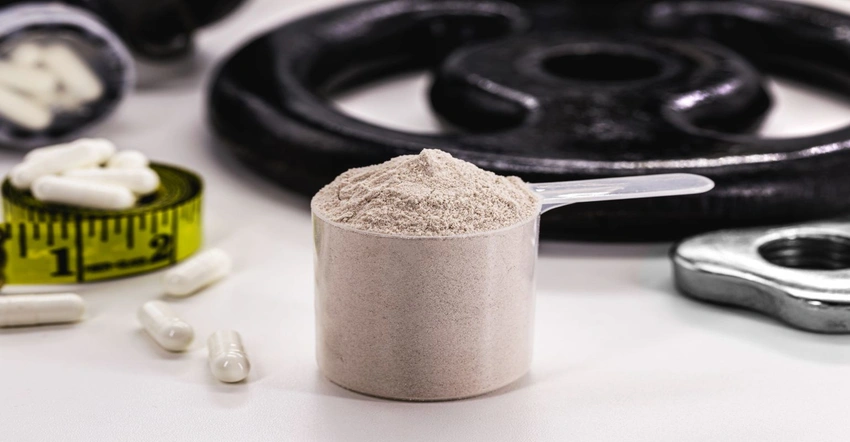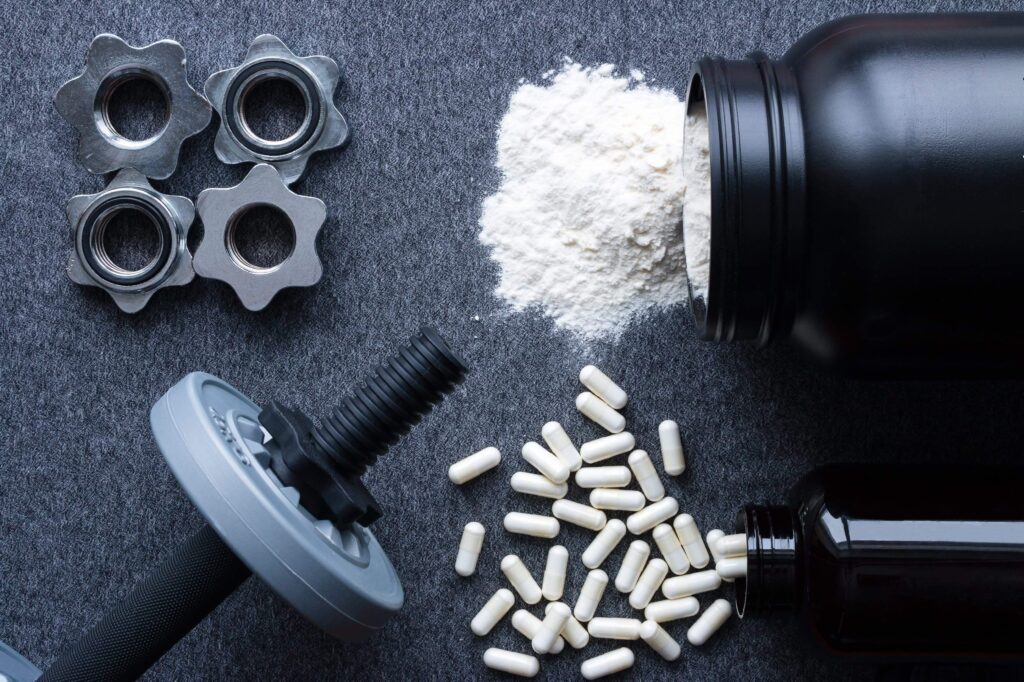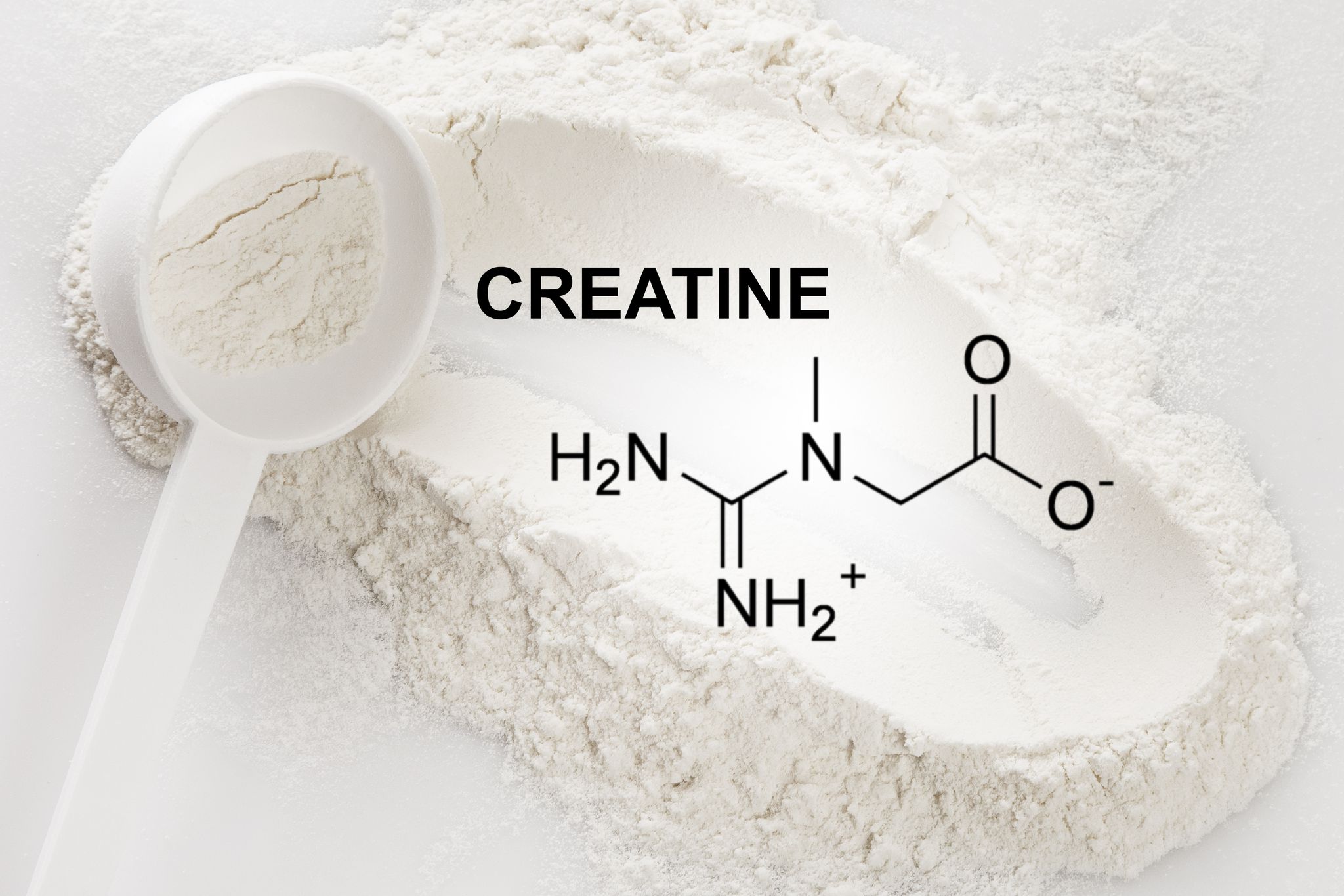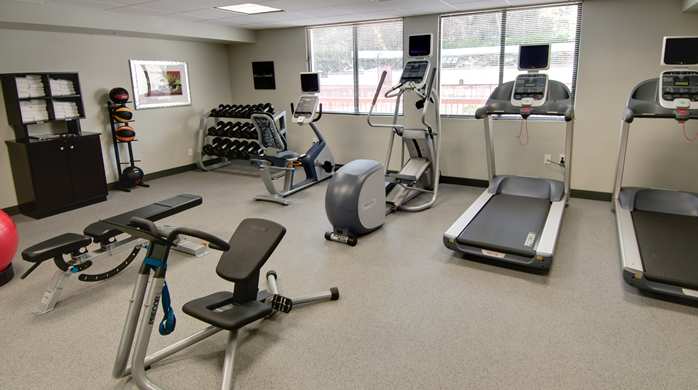Creatine supplementation might lead to temporary bloating or discomfort in some individuals due to water retention in muscle cells.
However, not everyone experiences these effects, and they tend to subside as the body adapts to the supplement. There is limited evidence to directly link creatine supplementation to increased flatulence (farting).
However, if considering creatine, start with a lower dose.gradually increase, and consult a healthcare professional. Especially if you have existing health conditions or are on medications.
Addressing the Claim: Does Creatine Cause Flatulence?
Unpacking a common concern, addressing the claim of whether creatine causes flatulence involves a closer look at the digestive process.
Review of available scientific studies and research on creatine and flatulence:
Scientific studies have examined the potential link between creatine supplementation and flatulence. However, the existing research does not consistently support a direct causal relationship between creatine and increased flatulence.
Furthermore, many studies have primarily focused on the performance-enhancing aspects of creatine rather than its digestive effects.
Some studies have reported gastrointestinal discomfort as a side effect, but it’s important to note that these effects are not universally observed.
When reviewing these studies, it’s crucial to consider factors such as study design, sample size, dosages used, and the specific creatine formulation. Methodologies can vary significantly, which may contribute to discrepancies in reported digestive issues.
Presentation of conflicting opinions and findings, if any:
While some individuals may report experiencing increased flatulence when using creatine, the reasons for this can be multifaceted.
It’s possible that personal sensitivity to certain components in creatine supplements, fillers, or additives could contribute to digestive discomfort.
Additionally, individual variability in gut microbiota composition could play a role in how different people respond to creatine supplementation.
Conflicting opinions may arise due to anecdotal evidence, personal variations in digestion, and differences in how individuals perceive and report gastrointestinal symptoms.
In addition, it’s important to approach these conflicting opinions with a balanced perspective, acknowledging that responses to creatine can vary widely.
What is the essence of Creatine comprehension?

Creatine is a naturally occurring compound found in small amounts in certain foods and synthesized in the body, mainly in the liver, kidneys, and pancreas.
Moreover, it plays a critical role in energy metabolism, specifically in the form of adenosine triphosphate (ATP) regeneration. ATP is the primary energy currency of cells, especially during short bursts of high-intensity activities like weightlifting or sprinting.
In addition, creatine acts as a rapid source of phosphate groups, aiding in the swift regeneration of ATP. This mechanism enables muscles to sustain optimal performance during short bursts of intense physical exertion.
Discussion on how creatine supplements are used by athletes and fitness enthusiasts:
Creatine supplementation involves consuming additional creatine in the form of creatine monohydrate, which is the most researched and commonly used form.
Moreover, athletes and fitness enthusiasts use creatine supplements to enhance their performance in activities that require short bursts of energy, such as weightlifting, sprinting, and jumping.
By increasing the creatine stores in muscles, individuals can potentially experience improved power output, enhanced muscle recovery, and increased muscle mass over time. The loading phase (initially taking higher doses) is often followed by a maintenance phase to keep creatinine levels elevated in the muscles.
What Are The Mechanisms of Digestion and Gas Formation?
Digestion is a complex process involving mechanical and chemical breakdown of ingested food. Stomach acids and digestive enzymes in the stomach and small intestine help break down proteins, carbohydrates, and fats into smaller components for absorption.
However, some components of the food, like certain carbohydrates (e.g., fiber), are not fully absorbed in the small intestine. They proceed to the large intestine, where they encounter a vast ecosystem of bacteria known as the gut microbiota.
In addition, these bacteria ferment undigested carbohydrates and produce gases like hydrogen, carbon dioxide, and sometimes methane. This fermentation process contributes to the gas content in the digestive tract.
How certain substances can lead to gas formation in the digestive tract:
Gas formation in the digestive tract is influenced by various factors. Certain types of carbohydrates, known as fermentable oligosaccharides, disaccharides, monosaccharides, and polyols (FODMAPs), are particularly prone to fermentation by gut bacteria.
Moreover, high-FODMAP foods, including some fruits, vegetables, grains, and legumes, can lead to increased gas production.
Additionally, swallowing air while eating or drinking, as well as the breakdown of undigested food by gut bacteria, contributes to the gas content.
Carbonated beverages and chewing gum can also introduce excess air into the digestive system, leading to bloating and flatulence.
What Are The Key Factors Influencing Flatulence?

Digestive systems vary greatly from person to person, influenced by factors such as genetics, gut microbiota composition, and overall gut health.
Some individuals naturally have more sensitive digestive systems, which can make them prone to experiencing gas and bloating when introducing new substances like creatine.
In addition, this variability underscores the importance of recognizing that not everyone will react the same way to creatine supplementation.
Mention of other factors that can contribute to gas, such as diet and lifestyle:
Beyond creatine supplementation, various lifestyle and dietary factors can significantly impact gas formation.
Consumption of high-FODMAP foods, excessive consumption of fiber, rapid eating, and inadequate chewing can all contribute to increased gas production. Carbonated beverages, smoking, and stress can also exacerbate digestive discomfort.
Moreover, it’s essential to consider the broader context of an individual’s dietary habits, hydration, physical activity level, and stress management when evaluating the role of creatine in any digestive symptoms.
Tips for Minimizing Potential Flatulence:
Experts often provide practical advice for individuals who experience flatulence when taking creatine. Moreover, these tips might include gradually introducing creatine into the diet to allow the digestive system to adapt, starting with smaller doses and gradually increasing them.
Experts might also recommend staying well-hydrated and maintaining a balanced diet rich in whole foods to support digestion. They might also advise individuals to consult a healthcare professional if discomfort persists or worsens.
Mention of dietary adjustments or supplement timing recommendations:
Experts could delve into specific dietary adjustments that could complement creatine supplementation. For instance, they might suggest consuming creatine with a meal to minimize potential digestive irritation.
In addition, they might also recommend avoiding high-FODMAP foods, carbonated beverages, and excessive fiber intake during the initial stages of creatine supplementation.
Additionally, experts might advise individuals to track their dietary intake and symptoms to identify any patterns and make informed adjustments.
FAQ’s
Is flatulence a common side effect of creatine?
Flatulence isn’t consistently reported as a common side effect of creatine. Studies and experiences show variability in how people’s bodies respond.
How can I minimize gas while using creatine?
Consider starting with smaller creatine doses, consuming it with a meal, and staying hydrated. Tracking dietary intake and symptoms can help identify patterns.
Should I consult a healthcare professional before taking creatine?
Yes, consulting a healthcare professional is recommended before starting any supplement regimen. They can provide personalized guidance based on your health profile.
Can lifestyle and diet influence flatulence with creatine use?
Absolutely. Diet, stress levels, and overall lifestyle can impact digestive responses. Avoiding high-FODMAP foods and carbonated drinks might help manage gas.
Is there a “best” time to take creatine to avoid flatulence?
Taking creatine with a meal might help reduce potential digestive irritation. However, individual responses vary, so find what works best for you.
Conclusion
Finally, in the journey to understand the potential relationship between creatine supplementation and flatulence, several key insights have emerged.
Throughout this exploration, we’ve delved into the intricate mechanisms that underlie both creatine’s role in energy production and the formation of gas in the digestive tract.
Moreover, we’ve navigated through scientific studies, expert opinions, and the multifaceted factors that contribute to individual responses.
In addition, expert insights have provided valuable context, reminding us that individual health is a dynamic interplay of various factors.
Encouragement to consult healthcare professionals underscores the importance of personalized guidance, ensuring that decisions align with one’s overall health goals.











